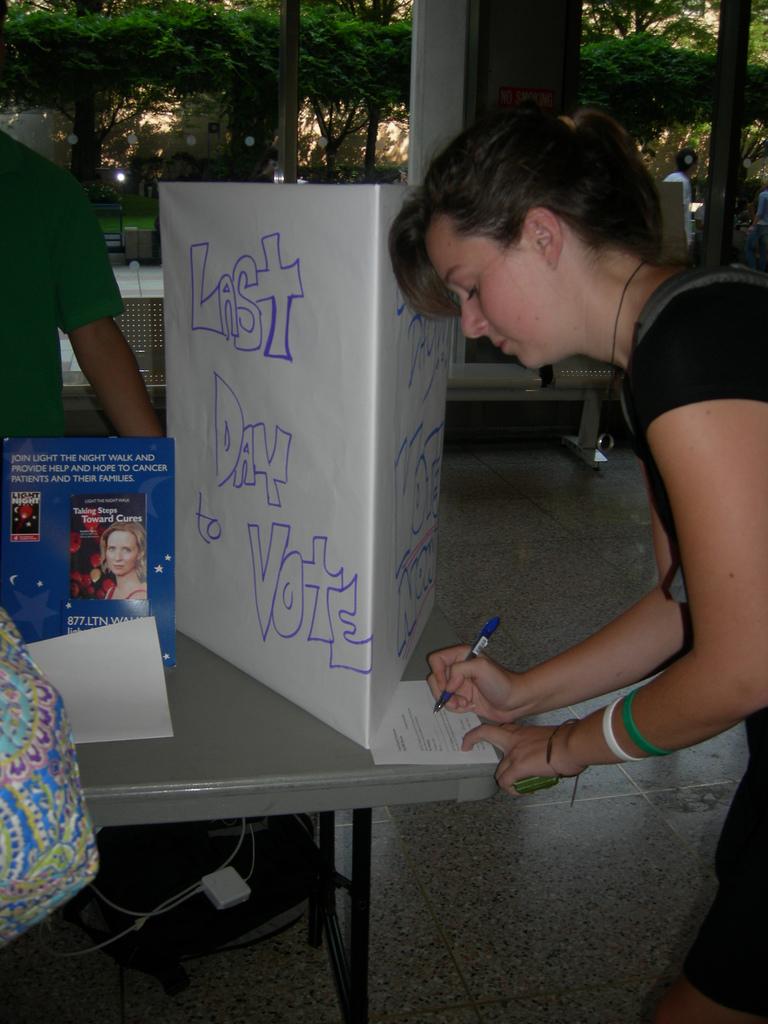USG Elections Held; Voter Turnout Low
May 27, 2011
Published: October 11, 2007
FCLC—United Student Government (USG) held elections on Fordham College at Lincoln Center’s (FCLC) plaza level from Sept. 24 through Sept. 26. An extra day was added to the usual two days of elections in an effort to produce a larger ballot turnout. Still, only 15 percent of FCLC students voted, according to Dorothy Wenzel, director of the Office of Student Leadership and Community Development.

This election’s winners were Jennifer Valdivieso and Julia Ash as senior senators, with 19 votes together; Sarah Devine as junior senator with 27 votes; Chelsea Marshall for sophomore senator with 51 votes; Jenna Matecki, Matt Rodriguez, and Ashley Tedesco for freshman senators with 142 votes together.
Historically, FCLC’s student body voting fluctuates from year to year. According to Wenzel, this fall’s ballot total was 239, representing 15 percent of the students. The past four years’ votes ranged from 142 to 259. In the fall of 2005, the highest votes cast were 259, approximately 16 percent of the student body.
Dave de la Fuente, FCLC ’10, USG president, offered a few reasons for the low electoral turnouts. He said how active USG is on campus affects the amount of students that have an interest in voting.
He also pointed out that fall elections always have a higher turnout than the spring. USG has more popular campus activities in the fall; therefore, the students care more, resulting in a higher voter turnout. The spring 2007 election had a total of 176 ballots, as opposed to this fall’s 259 ballots.
“Freshmen always vote the most,” de la Fuente said. He said that juniors and seniors have jobs, internships, and heavy workloads, making it hard to find the time to vote.
Becca Ballenger, FCLC ’11, voted “because I want people who understand the difficulties of being a freshman to have a real presence in USG.”
De la Fuente also said commuters bring in fewer votes than resident students, because many commuters come to FCLC for classes, rush to work and go straight home. Some commuters surveyed said that they feel they are less affected by USG because they don’t live on campus. Others, distracted by responsibilities outside of school, are oblivious to the elections.
Commuters represent 50 percent of the student body, but de la Fuente said some do not realize that their votes really count. “I have doubts as to the USG’s overall power,” David Taub, FCLC ’09, said. “In my opinion, any major issues are going to be dealt with by the school administration, with the USG being, at most, a minor voice in the dealings.”
Other students have a different opinion. “I think USG is great,” Perry Sun, FCLC ’10, said. “Mainly because we have a group of people that have the student body’s best interests in mind. They represent us and act as a liaison with the school’s administration.”
Some students said they did not vote because of the lack of information regarding the purpose and function of USG. Many students said they did not know who was running or how to vote.
“I didn’t vote partly because I didn’t know when the elections were,” Sun said. Of the students who did choose to vote, few were motivated to have their voice heard. Many voted simply because, “My roommate is running,” or “My best friend is running,” according to one student.
When asked about the elections, most students responded, “There’s an election going on?”








